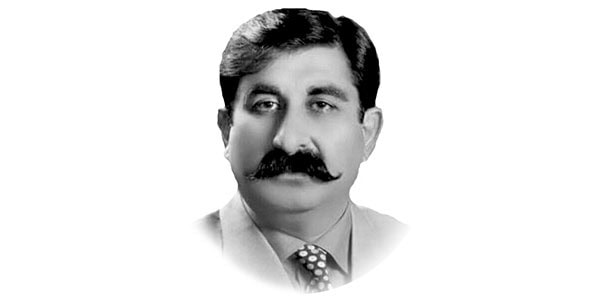Authoritarianism
THE authoritarian leadership style is focused solely on the leader. It is a style that is characterized by personal control over all decisions that must be made for a team.
Leaders using this style rarely take input from their team members when making decisions. These leaders prefer to make choices that are based on their own experiences, judgments and ideas.
They maintain absolute control over the group, requiring unquestioning support over the policies and procedures that are in place for every project. The work tends to be rigid and structured, with creativity often discouraged.
Pakistan has been a transitional democracy since the fall of Ayub Khan’s military dictatorship.
The policy-makers persist in calling ‘transitional’ are not in transition to democracy, and of the democratic transitions that are under way, more than a few are not following the model.
Sticking with the paradigm beyond its useful life is retarding evolution in the field of democratic assistance and is leading policy makers astray in other ways. It is time to recognize that the transition paradigm has outlived its usefulness and to look for a better lens.
It is unfortunate that the ongoing discourse on Pakistani domestic politics is built upon a highly flawed premise that Pakistan has been a transitional democracy. A key erroneous assumption of the transitional paradigm is that any country moving away from authoritarian rule is in the process of democratisation.
Our intelligentsia of the transitional paradigm is still living under the illusion that Pakistan remains fixated on the path of democratisation despite frequent episodes of democratic backslidings.
Transitional democracies are in fact neither autocracies nor democracies they are head into a grey zone. Hybrid regimes combining democratic and authoritarian elements are not new. Even in the 1960s and 70s, there existed multiparty, electoral, but undemocratic regimes.
There exist multiple typologies of hybrid, authoritarian and democratic regime classifications. Competitive authoritarian regimes can be understood as one of the variants of a hybrid regime. The concept of a regime being both competitive and authoritarian was first operationalised almost two decades ago.
Incumbents violate those rules so often and to such an extent, however, that the regime fails to meet conventional minimum standards for democracy. In a competitive authoritarian regime there are mainly four arenas of competition; electoral arena, legislative arena, judicial arena and the media arena.
There have been at least three political events that supports the categorisation of Pakistan as a competitive authoritarian regime.
First, the election of former Prime Minister Yousaf Raza Gillani, of the PPP, as Senator from Islamabad.
Yousaf Gillani, a combined opposition candidate, received 169 votes from Members of the National Assembly while PTI’s Abdul Hafeez Shaikh received 164 votes. A total of 340 votes were cast, of which seven stood rejected.
Second, following the election of Gillani to the Senate on the prestigious Islamabad seat, Prime Minister Imran Khan was forced to seek a vote of confidence from the National Assembly as he felt that the mandate to continue his premiership had become questionable.
Imran Khan won the vote of confidence with the backing of 178 MNAs slightly more than the magic number of 172 required to sustain the government.
This shows that the opposition only needs to unite and then buy over the conscience of seven MNAs from the ruling coalition to pull the plug on the incumbent government.
Third, the recent fall of Balochistan Chief Minister Jam Kamal Khan Alyani’s government in which the PTI was a coalition partner together with the Balochistan Awami Party (BAP) indicates a major political setback for PM Imran.
Political pundits in Pakistan are already weary of the risk of the Balochistan model being replicated in the Punjab Provincial Assembly to topple Chief Minister Usman Buzdar’s government before it is finally implemented in the National Assembly.
This means that a vote of no-confidence against the PM in the National Assembly within the next one year might be an inevitable outcome which may instead manifest in the form of an early general election in Pakistan.
These major political developments and many other minor ones this year serve as empirical evidence exhibiting that the current regime in Pakistan faces fierce competition in the legislative and electoral arena.
The amount of freedom that the media in Pakistan has enjoyed to criticise the regime is unimaginable in many dictatorships and even hybrid regimes despite occasional reports about media gag and harassment of journalists.
The judiciary in Pakistan has also demonstrated its ability in the past to be a formidable arena of competition against any prevailing regime.
The elected bodies of Pakistan still do not possess the real authority to rule as they frequently succumb to military tutelage and clerical leaders.
The civil society in Pakistan can take some relief in the fact that notwithstanding constant political engineering from the establishment, the enduring regime remains competitively authoritarian rather than a full-fledged electoral autocracy as seen in contemporary Bangladesh.
At the same time, the political class in Pakistan should wake up from their deep slumber hallucinating that the country is going through the process of democratisation.
—The writer is book ambassador, editor, political analyst and author of several books based in Islamabad.










